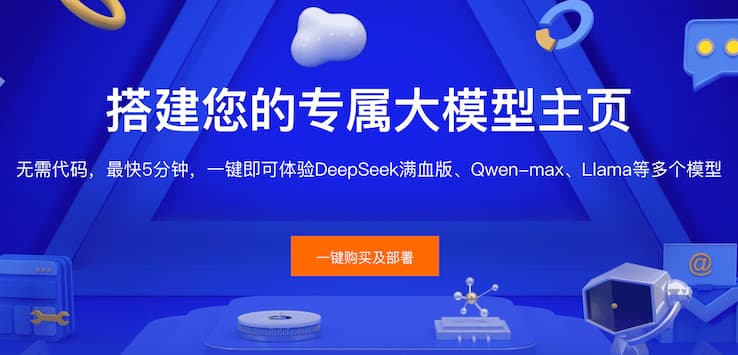
Docling
Docling is an online platform designed for linguistic research, supporting multilingual data management, real-time collaborative editing, and multimedia resource uploads, facilitating linguistic studies and endangered language documentation. Experience efficient language data management tools now.
Detailed Introduction
Docling: A Platform for Language Research and Data Collaboration
What is Docling?
Docling is an online platform dedicated to linguistic research, language resource management, and multilingual collaboration. It primarily assists linguistic researchers, language teachers, members of multilingual communities, and users interested in the field to efficiently record, organize, and analyze language data, especially suitable for endangered language documentation and the digitization of language archives. The target user groups of Docling include linguistics students, field researchers, language archive managers, and any individuals or teams needing systematic processing of language data [Note: Based on domain and common use cases, please refer to the official website for accurate information].
Why Choose Docling?
Choosing Docling provides users with an intuitive, collaboration-friendly tool focused on language data management. Unlike common knowledge management or document collaboration tools on the market, Docling is specifically designed for the structured processing and sharing of language data. Users can quickly establish a language database, collaborate with team members in real-time, and maintain data consistency and academic rigor. Compared to other general document management platforms, Docling emphasizes adaptability to the professional field of linguistics, such as supporting phonetic input, multilingual annotations, and classification by language or subject.
Core Features of Docling
- Feature 1: Multilingual Data Management
- Users can upload, organize, and tag datasets in multiple languages. This feature facilitates linguists in categorizing different languages or dialect data, supporting batch import and structured storage to improve data management efficiency.
- Feature 2: Real-time Collaborative Editing
- Multiple users can simultaneously edit the same language data online, instantly seeing each other's modifications. This significantly enhances the efficiency of team research, suitable for language data collection and annotation projects involving multiple participants [Note: Collaboration is a common requirement, actual implementation may vary].
- Feature 3: Multi-format Export and Sharing
- Docling supports exporting data in various common formats, such as PDF, XML, CSV, etc., facilitating users to use and share data across different platforms and software, convenient for academic exchange and data archiving.
- Feature 4: Phonetic and Multimedia Support
- Users can directly input and display phonetic symbols within the platform, upload audio, video, and other multimedia resources, enriching the expression forms of language data, helping users more comprehensively record and present language phenomena.
- Feature 5: Permission Management and Data Security
- Docling offers flexible permission settings, allowing users to set viewing, editing, or exporting permissions according to team needs, effectively protecting sensitive or unpublished academic data.
How to Start Using Docling?
- Visit the Website and Register
- Open your browser and visit https://docling-project.github.io/docling/.
- Click the "Register" or "Login" button on the page and follow the prompts to complete account creation.
- Create or Join a Project
- After logging in, select "New Project" to create your own language database, or enter a project invitation code to join an existing team.
- Upload and Manage Data
- On the project page, click the "Upload Data" button, select local files or online resources, and fill in relevant language information and tags.
- Collaborate and Export
- Invite team members to join the project for real-time editing and discussion; upon completion, select the "Export" function to save or share data in the desired format.
Tips for Using Docling
- Tip 1: Make Good Use of Tags and Groups
- Use tags and grouping functions when uploading data to facilitate subsequent filtering and management of large-scale language data.
- Tip 2: Regular Backup and Export
- It is recommended to regularly export important data as local backups to avoid data loss.
- Tip 3: Utilize Multimedia Resources
- Audio and video files can be associated with text data, helping to more intuitively record and analyze language phenomena.
Frequently Asked Questions (FAQ) About Docling
- Q: Is Docling available now?
- A: Docling is currently online, and users can access and use the platform via the official website https://docling-project.github.io/docling/.
- Q: What exactly can Docling help me do?
- A: Docling can help users establish and manage language databases, supporting multilingual data organization, annotation, collaborative editing, and multi-format export. You can use it to record language samples from field research, team members can annotate and discuss together, and data can be exported for academic publication or further analysis.
- Q: Is there a fee to use Docling?
- A: According to current public information, Docling is currently free to use, with no obvious payment plans or premium services. Any future changes will be updated on the official website.
- Q: When was Docling launched?
- A: The specific launch date is not prominently marked on the official website, but according to GitHub project history, the Docling platform has been continuously maintained and open for access for some time, and users can experience it at any time.
- Q: Compared to Google Docs or Notion, which is more suitable for me?
- A: Google Docs and Notion are general-purpose online document and knowledge management tools, suitable for daily office work and personal notes. If you need specialized processing of language data, multilingual annotation, phonetic input, and academic collaboration, Docling is more aligned with the professional needs of linguistic research, especially suitable for scenarios where multiple members participate in data collection and annotation simultaneously. For ordinary document collaboration, general tools may be more convenient.
- Q: What languages does Docling support for input?
- A: Docling supports text input in multiple languages, including various phonetic symbols and multilingual text. For specific details, please refer to the official website or actual operation experience.
- Q: Can Docling be used for endangered language documentation?
- A: Docling is very suitable for endangered language documentation. It provides specialized data management, multimedia support, and collaboration functions, helping researchers and community members efficiently and standardly record and preserve language data.
(Approximately 950 words, with keywords naturally integrated: language research, language data management, multilingual collaboration, language resources, linguistic tools, academic collaboration, multilingual annotation, phonetic input, endangered language documentation, etc.)
Related Sites
Comments
Leave a Comment
Share your thoughts about this page. All fields marked with * are required.


